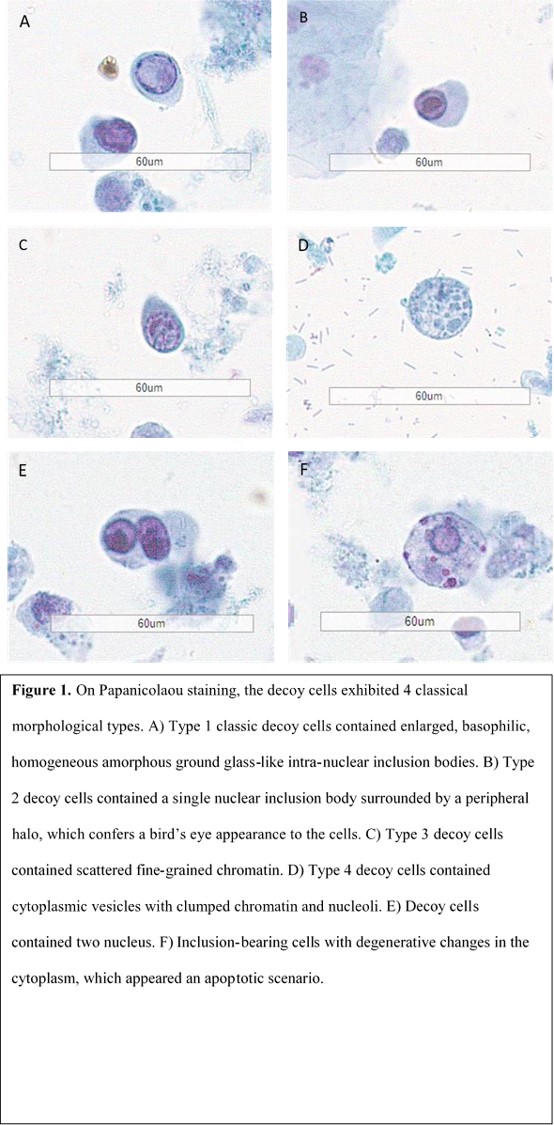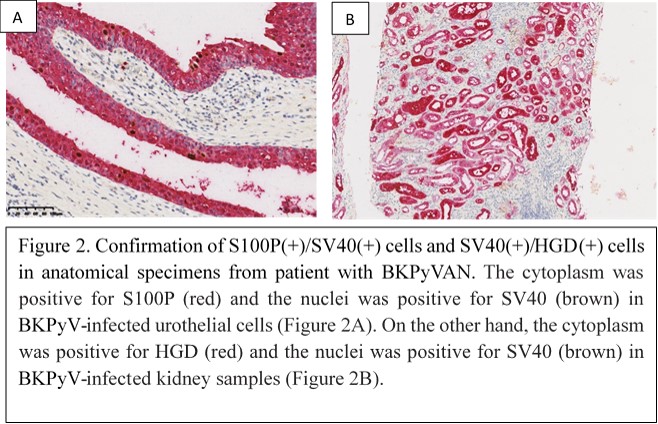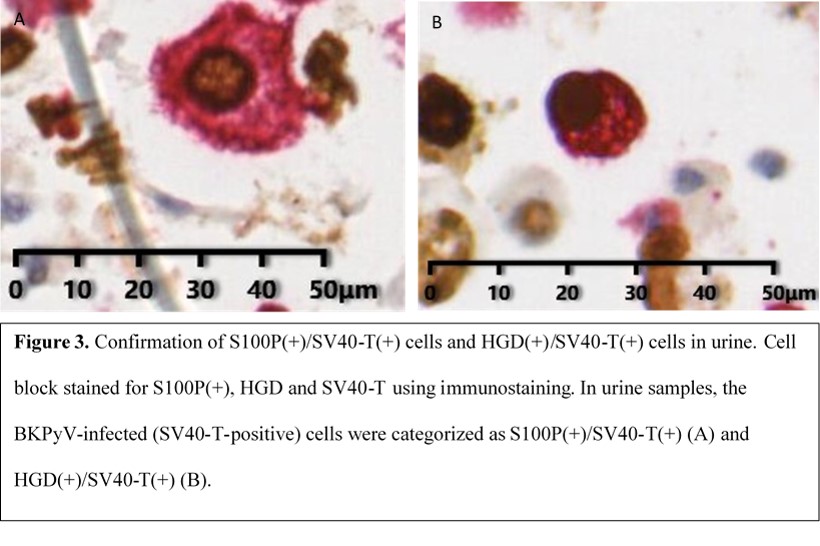The Noninvasive Urinary Sediment Double Immunostaining Test Predicts BK Polyomavirus Nephropathy in Kidney Transplant Recipients
1The First Affiliated Hospital of Sun Yat-sen University, Guangzhou, China, 2Guangzhou KingMed Center for Clinical Laboratory Co, Ltd, Guangzhou, China, 3Fuda Cancer Hospital, Jinan University, Fuda Cancer Hospital, Guangzhou, China
Meeting: 2020 American Transplant Congress
Abstract number: A-218
Keywords: Biopsy, Kidney transplantation, Polyma virus, Urinalysis
Session Information
Session Name: Poster Session A: Kidney: Polyoma
Session Type: Poster Session
Date: Saturday, May 30, 2020
Session Time: 3:15pm-4:00pm
 Presentation Time: 3:30pm-4:00pm
Presentation Time: 3:30pm-4:00pm
Location: Virtual
*Purpose: This study aimed to improve the diagnostic value of decoy cells for BK polyomavirus associated-nephropathy (BKPyVAN) in kidney transplant recipients.
*Methods: A total of 105 urine sediment samples with decoy cells morphology (Figure 1) and BK DNA viruria were evaluated by double-immunostaining with anti-SV40T and anti-HGD (a renal tubular marker) or anti-S100P (a urothelial marker) (Figure 2).
*Results: Of all patients, 76 patients (70 with BKPyVAN) had HGD(+)/SV40 T(+) cells and S100P(+)/SV40 T(+) cells simultaneously (Figure 3), 24 patients (3 with BKPyVAN) had S100P(+)/SV40 T(+) cells only, and 5 patients (no BKPyVAN) had S100P(-)/HGD(-)/SV40 T(+) cells only. The sensitivity and specificity of decoy cells for BKPyVAN were 45.8%, and 68.8% respectively. The sensitivity and specificity of BKPyV viremia for BKPyVAN were 61.1%, and 84.2% respectively. By contrast, the sensitivity and specificity of HGD(+)/SV40 T(+) cells for BKPyVAN were 95.9%, and 81.3% respectively.
*Conclusions: Double-immunostaining with anti-S100P/SV40T and HGD/SV40T help identify the origin of decoy cells and predict BKPyVAN.
To cite this abstract in AMA style:
Huang G, Chen X, Yang S, Hou X, Yang H, Wang C. The Noninvasive Urinary Sediment Double Immunostaining Test Predicts BK Polyomavirus Nephropathy in Kidney Transplant Recipients [abstract]. Am J Transplant. 2020; 20 (suppl 3). https://atcmeetingabstracts.com/abstract/the-noninvasive-urinary-sediment-double-immunostaining-test-predicts-bk-polyomavirus-nephropathy-in-kidney-transplant-recipients/. Accessed February 21, 2026.« Back to 2020 American Transplant Congress



